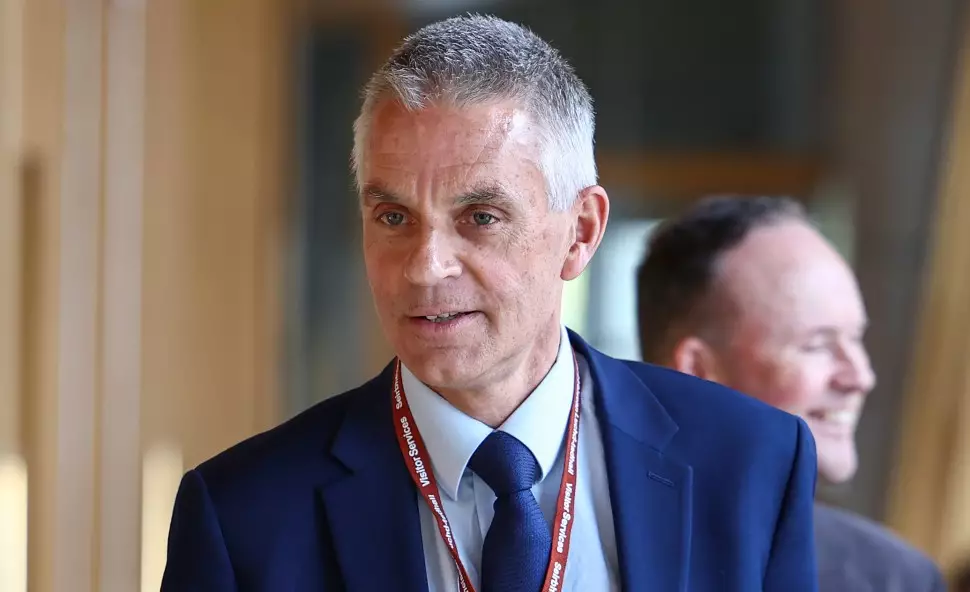The discourse surrounding climate change has transcended the realms of environmental activism and scientific discussion, embedding itself deeply within the fabric of contemporary media. As the world’s leading public service broadcaster, the BBC is poised to play a pivotal role in shaping this narrative. Tim Davie, the Director General of the BBC, is spearheading a significant movement aimed at placing sustainability and climate change at the forefront of media production. As he prepares to speak at the upcoming Climate Creatives event, Davie’s message resonates with urgency and opportunity, emphasizing the need for the media industry to leverage its influence in fostering a culture of environmental consciousness.
Davie’s assertions during his address highlight a transformative shift in the way content is created within the industry. Speaking to a gathering of commissioners, production crews, and creatives, he underscores that sustainability and climate awareness present not just a responsibility but a remarkable opportunity for engagement. “The audience is very interested in this topic,” Davie notes, suggesting a shared sentiment among viewers that could be harnessed to drive creative storytelling beyond traditional documentaries or news segments. This represents an enlightening frontier for producers, sparking innovative ideas that intertwine entertainment with meaningful environmental messaging.
One of the most crucial aspects of Davie’s initiative is his vision for integrating climate-related themes into various genres and formats—beyond the confines of documentary and current affairs programming. Whether through entertaining dramas, engaging children’s shows, or light-hearted comedies, there is potential to weave sustainability into narratives that resonate with diverse audiences. By compelling different genres to embrace environmental issues, the BBC, under Davie’s direction, can contribute substantially to an informed public gradually shifting toward sustainable practices.
However, the journey toward a sustainable broadcasting environment is a collective endeavor. Davie emphasizes that this is not solely the responsibility of the BBC; rather, it requires a concerted effort from the entire media landscape. Invoking a spirit of camaraderie, he states, “We have got a voice,” urging all stakeholders—production houses, independent creators, and mainstream broadcasters—to foster a dialogue about sustainability. The synergy between these entities can revolutionize the industry’s impact and allow for diversification of narratives surrounding climate change.
What sets the media apart, according to Davie, is its unique capacity to communicate complex ideas in compelling ways. The call to action extends beyond mere acknowledgment; there is an implicit challenge to “rewire our programming” for a lasting positive impact. Through the lens of entertainment, the industry can shape perceptions, prompt discussions, and motivate audiences toward actionable change in their own lives. The influential nature of cinema and television can be harnessed to inspire a proactive response to climate issues, showcasing the pathways to sustainability in relatable, engaging formats.
The Climate Creatives event, with venues spanning Belfast to London, exemplifies this collaborative ambition, uniting leading voices in the industry. In addition to Davie’s presentation, luminaries such as Chief Content Officer Charlotte Moore and renowned naturalist Chris Packham will address attendees, reinforcing the cross-sector commitment to sustainability. The diversity of perspectives presented at Climate Creatives will undoubtedly contribute to a richer dialogue and broader understanding of climate issues within the media.
Tim Davie’s impassioned call for sustainability at the heart of media not only signifies the BBC’s commitment but also serves as a beacon for the entire broadcasting sector. As film and television increasingly become crucial platforms for climate advocacy, the opportunity for genuine storytelling that inspires change cannot be overlooked. The potential for a more sustainable future lies in the industry’s ability to engage audiences emotionally and intellectually, presenting climate change not as an abstract struggle but as an immediate human story. As broadcasters embrace this narrative shift, they will not only fulfill a responsibility but also lead the charge toward a more sustainable world through the power of their platforms.

